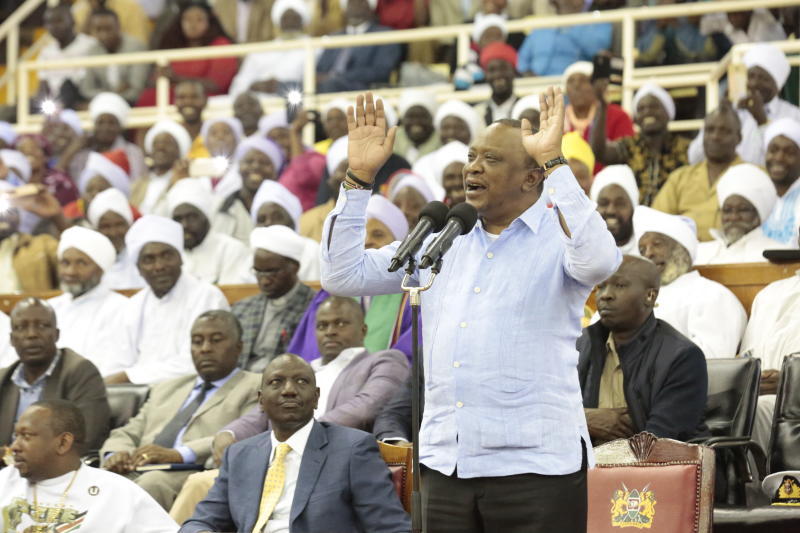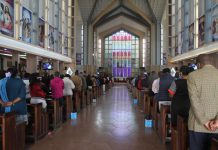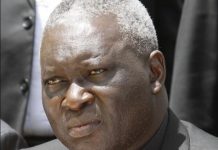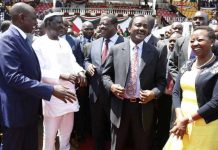AfricaPress-Kenya: As the country prepares for next year’s General Election, the Akorino church has once again been thrown into the limelight.
Every once in a while, politicians pitch camp at the church seeking votes from the faithful.
Started in the 1920s, the church which is currently estimated to have about one million followers, continues to attract the attention of political bigwigs who have always sought its support every election year.
According to political pundits, the Akorinos’ role during the pre-independence period and their relationship with the country’s founding president Mzee Jomo Kenyatta could be the reason why no politician can afford to ignore them.
In 1938 during its infancy, Mzee Kenyatta referred to the church as Watu wa Mungu (people of God), and observed that despite the religion having roots in various parts of Central Kenya, its political role in the society was not being felt.
Political class
Since then, the minority faith group has not been ignored by the political class, including President Uhuru Kenyatta, his deputy William Ruto and other leaders from the Mt Kenya region.
Both leaders have attended crucial functions organised by the church, the latest being a conference graced by the DP as the chief guest.
Now almost 80 years since the church began, the Akorino have developed their own set of social values, material culture, and systems of protection against injustice and violence.
The Akorino community is an example of how the old and the new have been integrated into the changing structures of social and economic political life of new African States.
“If you wanted to make a political statement, this is one religious grouping that will never let you down because of its ability to mobilise large congregations with a signature stamp,” said Bishop Samuel Njiriri of the Stewards Revival Church whose headquarters is in Kariobangi, Nairobi.
Allan Wanjiku, a political scientist concurred, saying although this is a smaller religious group, its faithful comprise of honest and sincere members who a politician can bank on for political support.
Loyal followers
“They are honest and sincere and adhere to their principles to the letter; they support government policies in accordance to the many biblical Old Testament verses and if they declare their support for a candidate, they will not betray him or her,” Wanjiku notes.
He added that the church, which grew strictly out of the indigenous leadership, did not split from any western mission and that its first generation membership came out of various missions as well as the unchurched population that follow the Gikuyu tradition.
“This makes the faithful to remain steadfast and principled because they relate so much with their culture and this is attractive to the political class,” Wanjiku said.
Hezeh Kariuki, a member of the church, said although the Akorino sect remains non-politically aligned, they have considerable political influence, adding every politician worth his salt would want favour from them.
“Religious practices have a critical bearing on the political interests of the State. It is against this background that some religious identities in Africa have enjoyed more positive political and State attention than others, giving rise to the dichotomous notion of minority and dominant religious discourses within the African State,” Kariuki aadded.
Different names and titles have been used to refer to Akorino. The late Kenyatta spoke of a religious group known as God’s people or arathi (prophets). The colonial administrative files of 1931 refer to them as ‘false prophets’.
The name by which the adherents are most commonly known by the present day outsiders first appears in February 1934 as aroti (dreamers).





